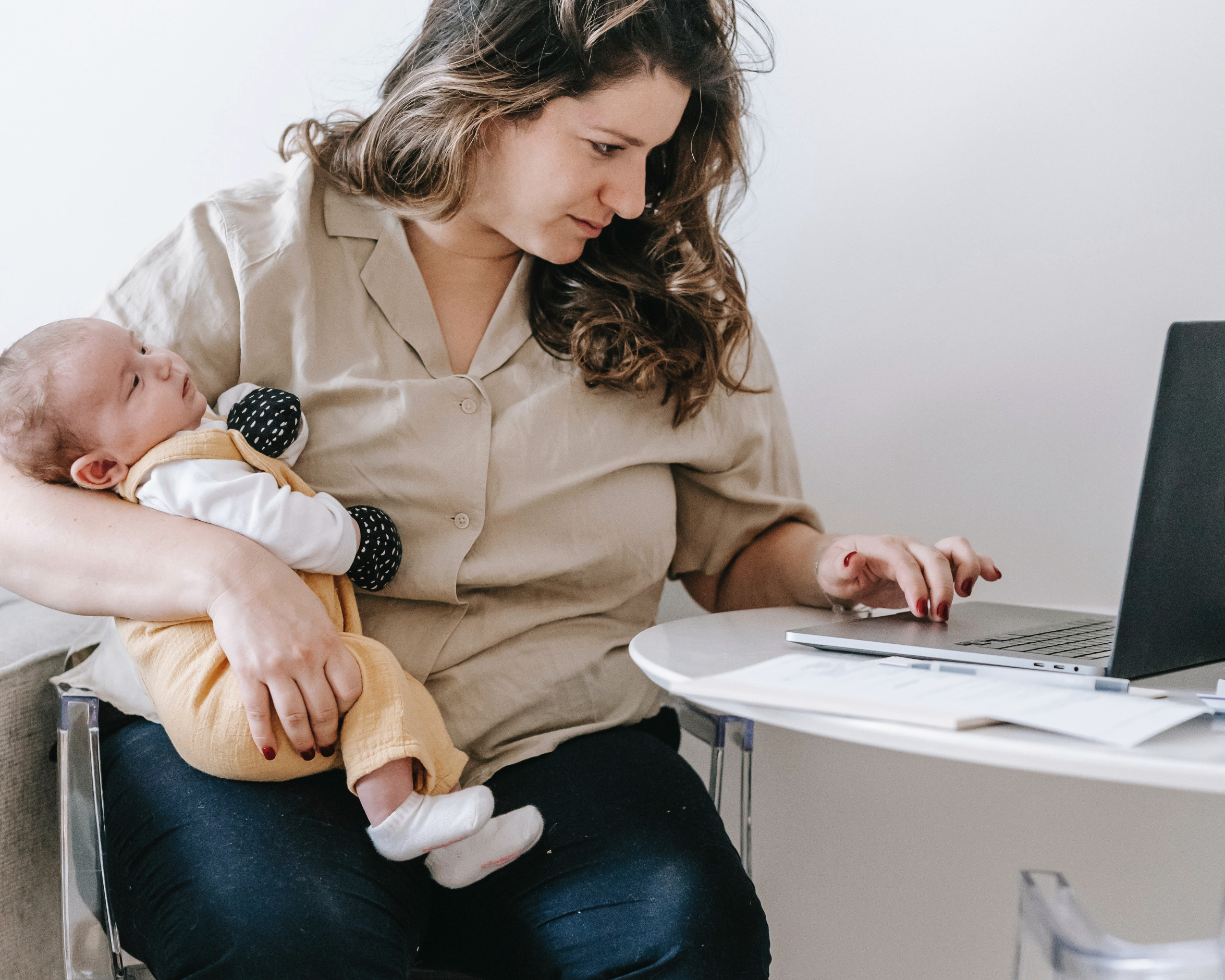Many of us enjoy sharing our kid’s baby pics, embarrassing childhood moments and more. But too much ‘sharenting’ can be detrimental…
We share a lot of our lives on social media, making sure to let our online friends know (sometimes a little too much) about what’s going on in our lives. Often our kids get roped into our online presence as well, whether we’re announcing pregnancies, posting Instagram stories of swaddling our babies, or even those naked pics of our children in the bath. With the plethora of family-centric content, parents have to consider how much privacy they’ll give children. Will you share every waking moment of your child’s life and become a blogger of your own for thousands of strangers to view, or will you keep sharing to a minimum? This has many parents asking about how to limit ‘sharenting’ and keep kids safe in a digitally dominated society.
What is ‘sharenting’?
Sharenting allows parents to show off their family and navigate their lives as parents. Some sharents take to their social media to share their struggles, keep in touch, connect with like-minded people, or curate the perfect family image. Simply put by Michelle Dickens, CEO of TPN Credit Bureau, ‘Sharenting is a term that has evolved to describe parents who share too much information about their children on social media’. Various mommy-bloggers have expressed online and via other sources that they started sharing and writing about their children to cope with feeling isolated. Some found that other parents online added to the pressure to be a perfect parent. But with anything shared online comes a concern of privacy – are children ‘safe’ online?
The dangers of oversharing
You may be thinking, ‘But my account is private’ or ‘I don’t have many followers other than family’, but for others, there is a following online that can disrupt children’s privacy. Fraud may not be the first thing on your mind when posting an innocent picture of your child. But according to Michelle, it is estimated that by 2030, sharenting could result in up to 7 million incidents of identity theft. Predators are now also using ‘digital kidnapping’; stealing children’s pictures and posting them to their feeds. Some might photoshop one child’s head on to the body of another as pornographic content, or even pass the child off as their own. Cyberbullying has increased as the number of social-media websites do, with a 2018 survey reporting that 59% of US teens experienced cyberbullying. For young children, a meant-to-be-funny photo may result in cyberbullying from peers, and could cause them to grow up insecure. Lack of trust, embarrassment and frustration can develop between children and parents who overshare. In a study done in 2019, it was found that pre-teens developed negative self-images and felt annoyed and frustrated by their parents sharenting. Not asking the child’s consent, or oversharing ‘embarrassing’ moments can lead to children not fully trusting their parents.
Protecting children from the net
The dangers of sharenting can seem frightening, but they’re meant to educate us in understanding how easily an innocent post can become more serious in a vast digital world. Even if you’re not sharenting, it is important to make sure that children are safe when using the internet: Privacy is crucial. Social-media platforms have settings for who may see, comment on, or share your posts – be sure that you and your children are as private as possible Ask for consent before posting any pictures or private information. This shows children the importance of monitoring what they can and can’t post. Think about the consequences of posting a picture. Posting baby pics online may seem fun and cute, but the entire digital world may have access to do with it what they will. Know your platforms and those your child may be exposed to. Spend time with children online and teach them about the positives, but also to recognise age-appropriate content and understand the importance of privacy online. Don’t post names, locations or dates. Have location services turned off, be careful of posting addresses, children’s ages and names, and limit access to public WiFi services. It is extremely important to keep in mind the safety of the child and yourself before sharing personal information online.
Words by Saadiqah Schroeder
Photography Courtesy Images





